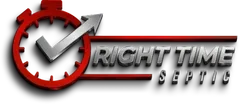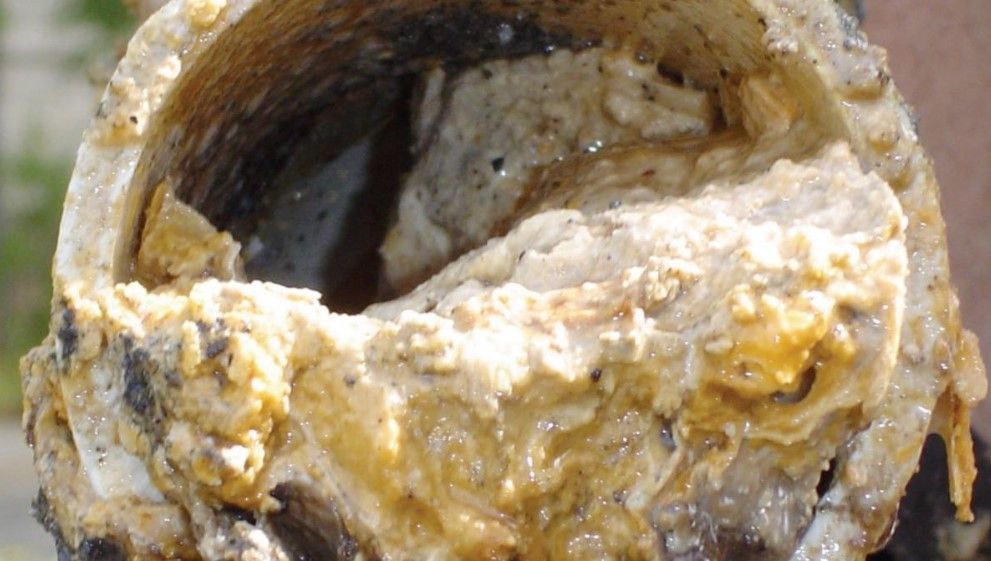THE ROLE OF BACTERIA IN A SEPTIC TANK
We serviced a 10 month old home recently for septic service which is way to soon. But upon opening the septic tank we found that the solids was extremly thick and indeed the septic tank needed to be serviced. So we educated the home owner on the benifits of bacteria in the septic tank. Now you may ask what bacteria? Well bacteria are the most dominant and important microbes in a septic system. Other microbes include fungi, protozoa, rotifers, and nematodes. Bacteria are microorganisms, which means they are extremely small, but they are also living things and so they need some form of sustenance. They feed on organic matter in your septic tank. Bacteria are also pH sensitive and they require the pH levels to be maintained between 6 and 7.5. This explains why some household products are not very good for the septic tank. Basically, any product that can cause a pH imbalance in the septic tank should not be allowed to go down the drain. When the conditions are favorable, bacteria can reproduce every 15-20 minutes. Unfortunately, the conditions in the septic tank are rarely that conducive, mainly due to the toxic substances that are used in the home. This often leads to the depletion of the bacteria population, a phenomenon that is responsible for the failure of many septic tank systems.
Should You Buy Septic Tank Additives?
Research shows that you cannot expect an overall positive effect from adding any bacteria or enzyme to your septic tank via your toilet. Doing so could damage your tank. At the same time, some products may help prolong your septic tank life. You need to check with your septic system specialist at Right Time Septic about your septic tank’s specific needs. Call before you have a problem and extend the life of your tank.
Signs of Septic System Failure
Septic System Backup
Every plumbing appliance in your home is connected to your septic system. When your septic system fails or is full, sewage and wastewater will no longer enter the septic tank. Instead, it will stay in the pipes until it begins to come up.
This results in sewage and wastewater backing up into sinks, drains, and even your toilet. This is the most visible sign of a septic tank failure. If you notice this symptom, you should contact us immediately for service.
Slow Drains
Septic tank failure can also cause slow drains. For example, if a septic tank is full it won’t actively collect wastewater. This means that your pipes will be clogged full of sewage, inhibiting its ability to drain your plumbing appliances.
What happens is that your drains will become naturally slow to drain water or other liquids. No matter what tools you use to unclog your drain, you won’t succeed since the underlying problem lies in the septic tank.
Slow drains are the precursor to a full septic system backup, in which your drains don’t work at all and wastewater backs up into your home.
Gurgling Sounds
You should also watch out for strange sounds when you use plumbing appliances. For example, if you flush your toilet and hear weird gurgling sounds, then you should contact us immediately.
Toilets normally make water-related noises that end once it’s finished flushing. However, if you hear sounds similar to an upset stomach, then you have a clear problem. The same principle is true if you hear gurgling noises in your drains.
Gurgling noises point to a clog or an internal septic system issue that requires immediate servicing.
Pool of Water or Dampness Near Drainfield
When a septic tank fails, it will no longer absorb wastewater. This means that wastewater will naturally seep from the ground. It can form a large pool of wastewater near the drain field, or lead to dampness in the same region.
These are perhaps the most glaring signs of septic system failure. A pool of water near the drainfield will normally look like it has rained on your lawn for a very long time. Dampness near your drainfield, especially when it hasn’t rained for days, is also suspect.
Make sure you actively look for these symptoms if you fear that your septic tank is full or damaged.
Nasty Odors
Another tell-tale sign of septic system failure is the presence of nasty odors near the drainfield and plumbing appliances. If you detect strong and foul odors when you walk outside and step into your lawn, then your septic tank likely has failed.
If your home has the same foul odors, then you can draw a similar conclusion. These nasty odors point to the presence of sewage that has crested the drainfield and worked its way into your main drain line.
Unusual, Bright Green Grass Above Drainfield
Have you ever seen people place mulch, fertilizers, and manure on their grass to help it grow? Sewage can have the same properties as manure, containing nitrogen, potassium, phosphorus, and micronutrients that plants can absorb to grow.
Therefore, if you notice any unusually green grass near your drainfield, wastewater is likely leaking into your lawn. Since grass is naturally green, spotting this symptom can be tricky.
Wastewater will contribute to abnormal levels of greenness in your grass to an extent in which you’ll definitely notice. Pay close attention to your drainfield to spot this issue before it becomes too problematic.
At Right Time Septic, we are your source for professional septic repair, installation, pumping, and maintenance service. Contact us today for a FREE estimate.





